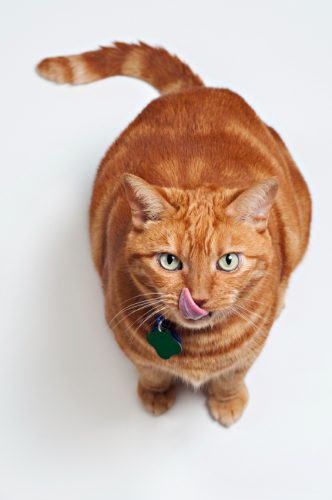The Problem with Plump Pets
 As a country, many of us have learned to turn a blind eye to pets who are overweight. We coo and giggle over fat cats and pudgy pooches, when really there’s nothing funny about it. With over 50% of American pets tipping the scales, obesity in our nation’s pets has truly become an epidemic.
As a country, many of us have learned to turn a blind eye to pets who are overweight. We coo and giggle over fat cats and pudgy pooches, when really there’s nothing funny about it. With over 50% of American pets tipping the scales, obesity in our nation’s pets has truly become an epidemic.
Even just a few extra pounds on your dog or cat can increase his or her risk for some very serious medical problems. Common problems that are directly influenced by weight include:
-
Type 2 diabetes
-
Respiratory disease
-
Heart disease
-
Osteoarthritis
-
High blood pressure
-
Many types of cancer
Pets that are overweight are not only at increased risk of developing these issues, but are very likely to develop more than one, making the cost of care high and the overall quality of life poor.
Likewise, overweight pets live shorter lives than they would otherwise and tend to be less energetic and playful. Excess weight truly has an adverse effect on quality and quantity of life.
So what can you do?
-
Have your vet help you determine how many calories your pet needs each day and implement a program to achieve that. Slow, gradual weight loss is encouraged. Never make abrupt changes, or attempt to put your pet on a crash diet.
-
Measure out your pet’s food every day. Chances are you are not as great at “eyeballing” it as you think.
-
It is vital to provide routine exercise for your pet. If you are walking to achieve weight loss, you may need to save the leisurely pace for the way back. Walk briskly and with purpose.
-
Make your pet work for its food by keeping it in a location far away from his or her normal hangout. Consider using a food dispensing toy to distribute your pet’s daily allocation of kibble.
-
Use toys to encourage physical activity for at least 15 minutes a day. Getting your pet up and moving is key to his or her weight loss success.
It is important to keep in touch with your pet’s doctor during any weight loss attempt. Bring your pet in frequently for re-checks and weigh-ins so that progress can be monitored and adjustments made to portions and food choice, if needed.
Please remember that you are not alone when it comes to getting your pet down to a healthy weight and maintaining that weight for the duration of your pet’s life. Likewise, if you’re looking to shed a few pounds too, your pet can be a great weight-loss partner. Please give us a call with your questions or concerns, we’re always happy to help.


